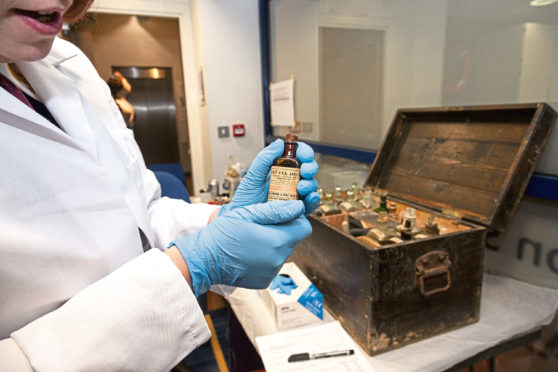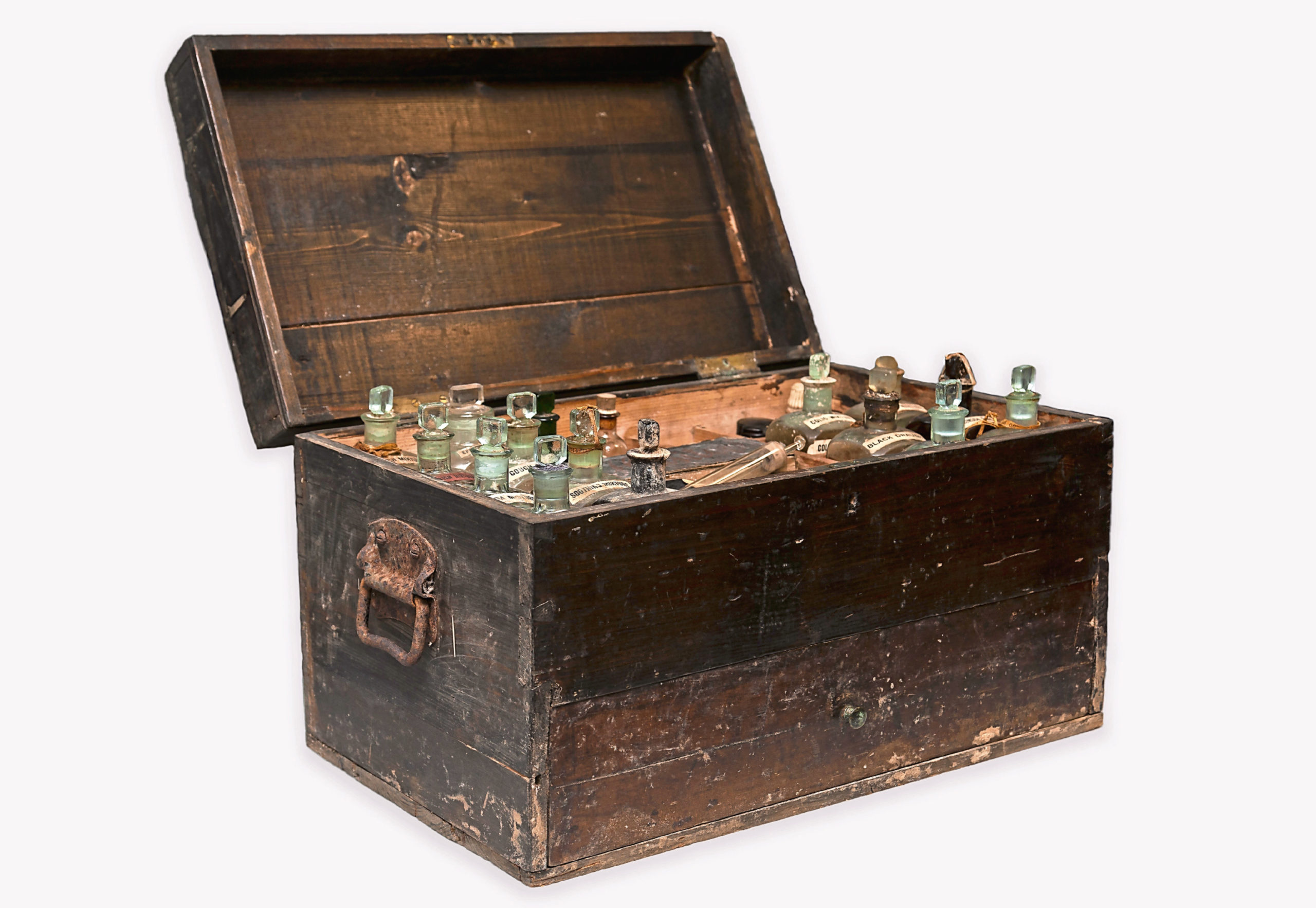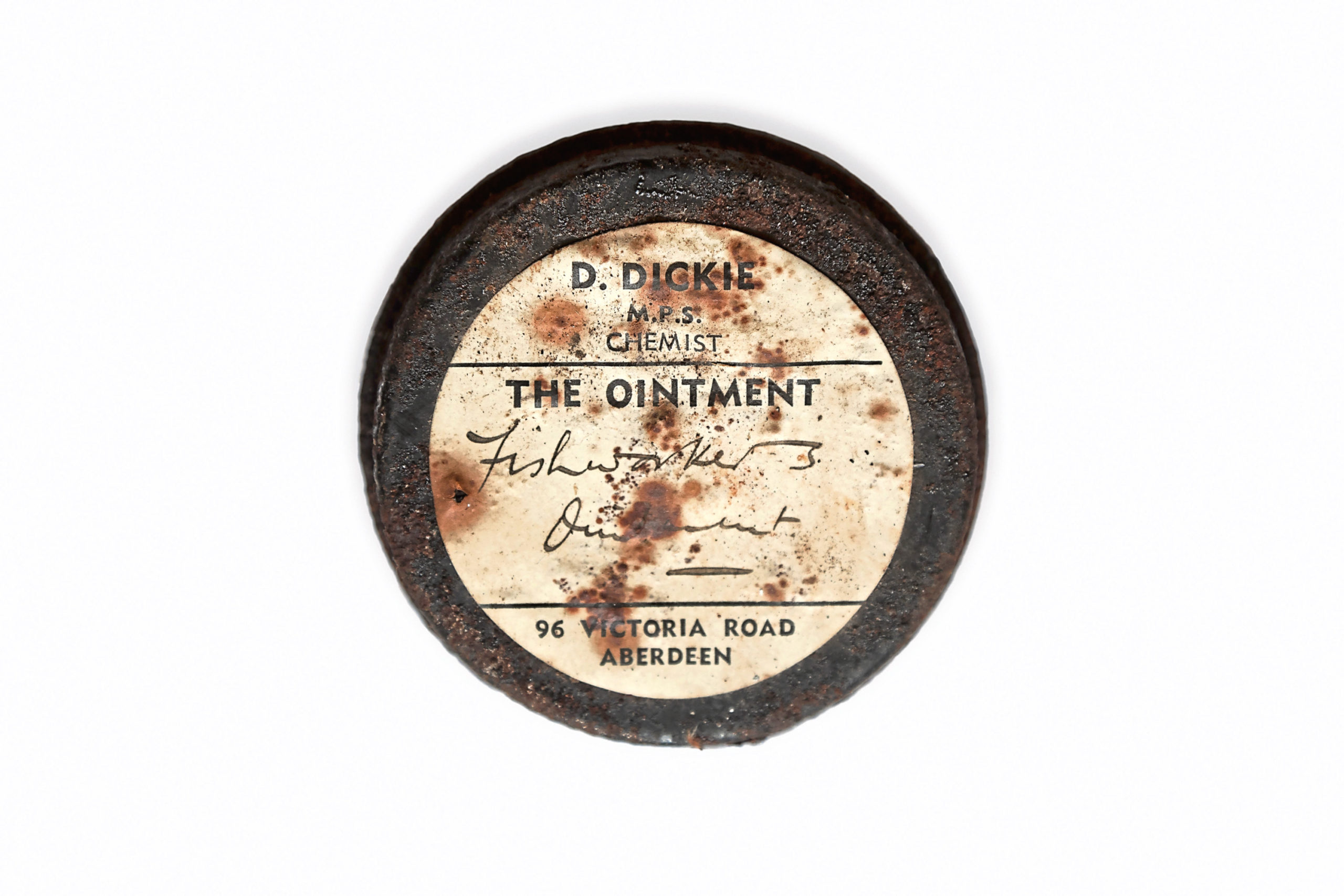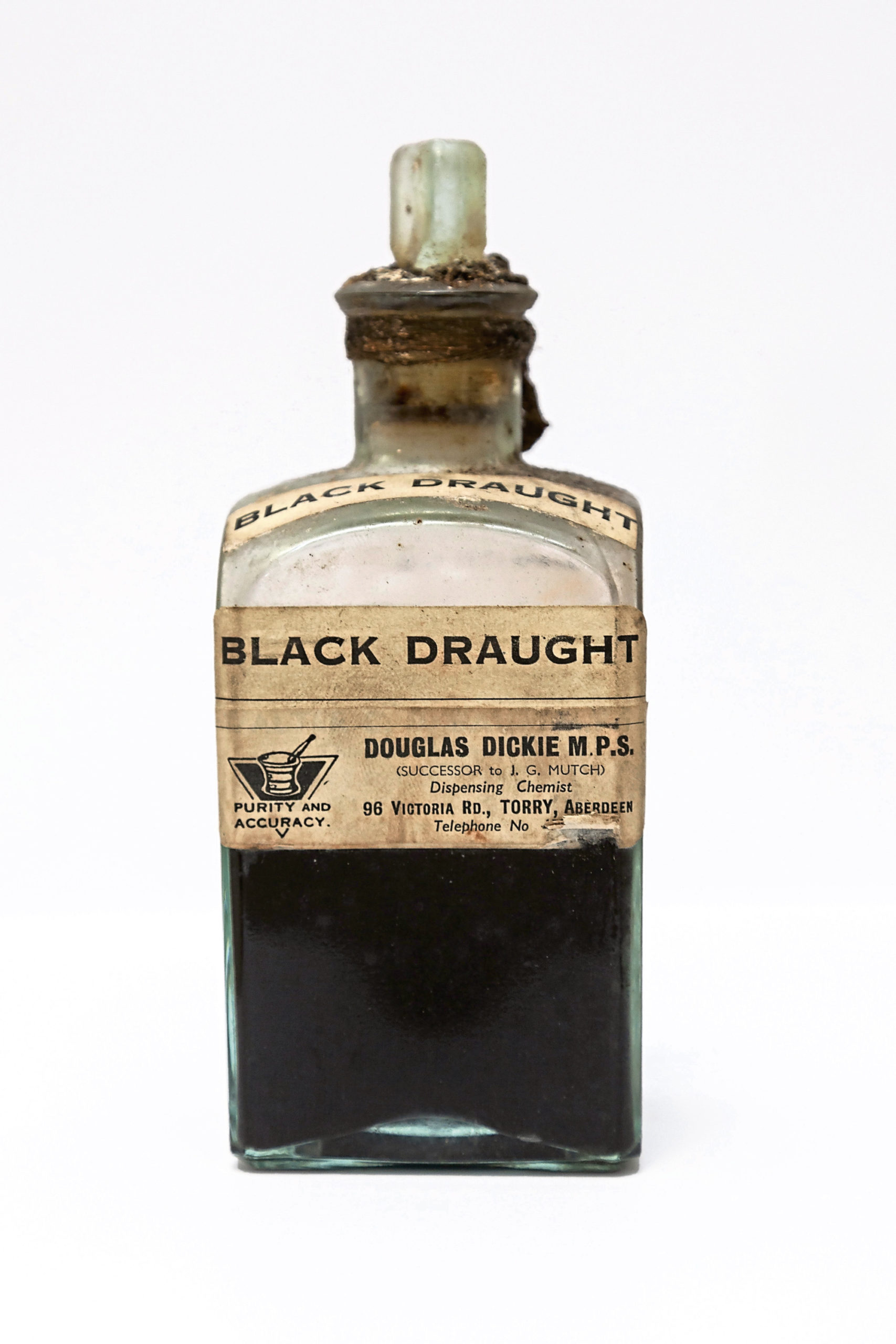During a spring clean of one of our display cases at Aberdeen Maritime Museum I got a chance to get up close and personal with this ship’s medicine chest.
The chest came to us in 1992 from the Receiver of Wreck, who monitor items recovered from shipwrecks off the British coast.
This chest came from an Aberdeen trawler that was wrecked off Hoy in Orkney in the mid 1900s.
The wooden chest has square compartments designed to fit the bottles neatly, causing as little movement as possible to protect the fragile glass from rough seas.
Medicine chests such as this were a very important part of life and work at sea. Fishing boats could be away from land for long stretches and medical aid was administered by other members of the crew.
Life at sea was hard, and any illnesses or accidents could be very serious if not treated quickly and correctly. The ship’s medicine chest was a key part of ensuring those on board were kept fit and healthy. Medicine chests have even been discovered on ancient Roman shipwrecks
Life on board was tough on the skin, especially on hands that were exposed to turbulent weather conditions and salty water. The constant moisture caused by being on the sea and handling fish and nets created skin problems for many fishermen.
This chest contains several ointments to help soothe these skin complaints, including a preparation called Fishworkers Ointment.
The restricted diet at sea could lead to gastrointestinal complaints such as diarrhoea and constipation. Medicines to help with these issues are a common find in maritime medicine chests.
The ominously named Black Draught is a senna-based laxative agent to relieve constipation caused by a fish-based diet.
Medicine chests are a rich store of information about daily life for those who lived and worked at sea and we are very lucky to have such a great example in our collections.
Join us at Aberdeen Maritime Museum for Our Aberdeen, a series of free weekly dementia-friendly sessions for adults.
Explore the Silver City’s heritage through objects from our collections of art and social and maritime history.
- Monday 17 June: Hands-on history: Shipbuilding
- Monday 24 June: Marischal College and the Edwardians
For full details of the all the sessions in the series go to www.aagm.co.uk/whatson
Aberdeen Art Gallery & Museums:
- Aberdeen Art Gallery (reopening autumn 2019)
- Aberdeen Maritime Museum (open 7 days, admission free)
- The Tolbooth Museum (open 7 days, admission free)
- Aberdeen Treasure Hub Museum Centre
For visiting information go to www.aagm.co.uk
Keep up to date with all the latest news from Aberdeen Art Gallery & Museums by signing up to our e-newsletter at www.aagm.co.uk/mailinglist
Follow us on Facebook, Twitter and Instagram @AbdnArtMuseums



